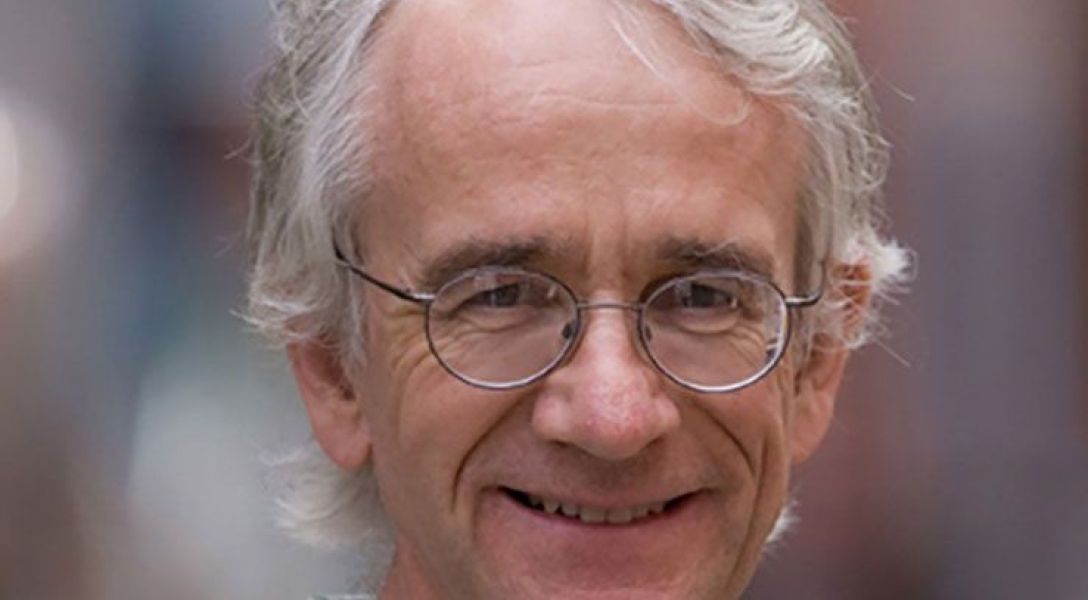Richard Smith, Ph.D. ’79 – a leading statistician in extreme value theory whose research has informed our understanding of climate change and air pollution, among other topics – will receive the Department of Statistics and Data Science’s annual Cornell Distinguished Alumni Award.
The award will be presented at the department’s 7th Celebration of Statistics and Data Science on Friday, Sept. 6, in the J. Willard Marriott Executive Education Center in the Statler Hotel. Open to all members of the Cornell community, the daylong event celebrates Cornell’s rich history in statistics, data science, and mathematics, and will feature talks from eight leading researchers who are driving innovation in the field, including Smith, who will give the keynote talk.
“Cornell has had so many great researchers coming through its departments and who’ve gone on to make careers in statistics. So, of course, I’m very pleased to be recognized in this way,” said Smith, who received his Ph.D. in operations research.
For nearly 40 years, Smith – currently the Mark L. Reed III Distinguished Professor of Statistics in the College of Arts and Sciences at the University of North Carolina (UNC) and professor of biostatistics at UNC’s Gillings School of Global Health – has been a renowned expert on extreme value theory, a statistical theory that explores the probability of extreme deviations from the norm. His research focus has proved instrumental in our understanding of extreme weather events related to climate change as well as the impacts of air pollution. He has published dozens of papers on both subjects – and dozens more on others.
“What excites me is less about doing mathematics for the sake of mathematics and more about developing mathematical theories that have real application to society,” he said. “Climate change has been such an example.”
In 1975, having just completed his undergraduate studies in mathematics at Oxford University, he was recruited to Cornell by Bruce Turnbull, Ph.D’ 71, professor emeritus in operations research and statistics and data science and a past recipient of the Distinguished Alumni award. The Department of Statistics and Data Science did not yet exist, but he said it was an exciting and vibrant time for research, even with mathematicians based in different departments across campus – including luminaries like Turnbull, Smith’s Ph.D. advisor Howard Taylor, Robert Bechhofer, and Jack Kiefer. He also learned from leading experts in probability theory such as Frank Spitzer, Harry Kesten, and Eugene Dynkin.
Smith began with studying probabilities, but after graduating in 1979, he shifted his research focus to statistics, thanks in part to visiting lectures from Sir David Cox, a pioneering statistician and professor at Imperial College who would eventually serve as Andrew D. White Professor at Large at Cornell from 1983 to 1989.
Back in London to teach at Imperial College, Smith discovered that applied fields like hydrology, oceanography, and meteorology were using extreme value theory. In particular, statisticians at the then-named Institute of Hydrology – a precursor to the UK Centre for Ecology and Hydrology – were using extreme value theory to inform flood studies reports. Smith got involved.
“A lot of my work then was developing more rigorous theory about the statistical models the institute used, all aimed at the problem of estimating extreme value probabilities,” he said. “Initially, it was just about these extreme value problems, but then I got interested in other kinds of problems related to environmental statistics.”
In 1991, he moved to the United States to teach at UNC-Chapel Hill, which happened to be near the Environmental Protection Agency’s (EPA) main research office. Smith’s subsequent research partnership with the EPA spurred extensive work on air pollution and its health impacts. His published research further shifted toward environmental statistics in 1993 – with the first of many subsequent papers using statistics to study climate change and its role in extreme weather events.
Smith – a dedicated runner – has also published numerous papers on running performance, even working closely with the Boston Marathon to crunch running data to determine appropriate qualifying times.
Throughout his distinguished career, Smith has received countless awards and honors: he is a fellow of the American Statistical Association (ASA), the Institute of Mathematical Statistics (IMS), and the American Association for the Advancement of Science (AAAS); an elected member of the International Statistical Institute, and the recipient of the Guy Medal in Silver of the Royal Statistical Society and the ASA’s Distinguished Achievement Medal of the Section on Statistics and the Environment, among many others. In addition to his teaching positions, Smith served as director of the Statistical and Applied Mathematical Sciences Institute (SAMSI) from 2010 to 2017.
To budding students exploring applied statistics, Smith encourages them to know their math.
“It’s my first question: ‘What’s your mathematical background?’” he said. “If you’re pursuing statistics or a related field, you must have a handle on the mathematical side. It’s very important.”
Louis DiPietro is a writer for the Cornell Ann S. Bowers College of Computing and Information Science



